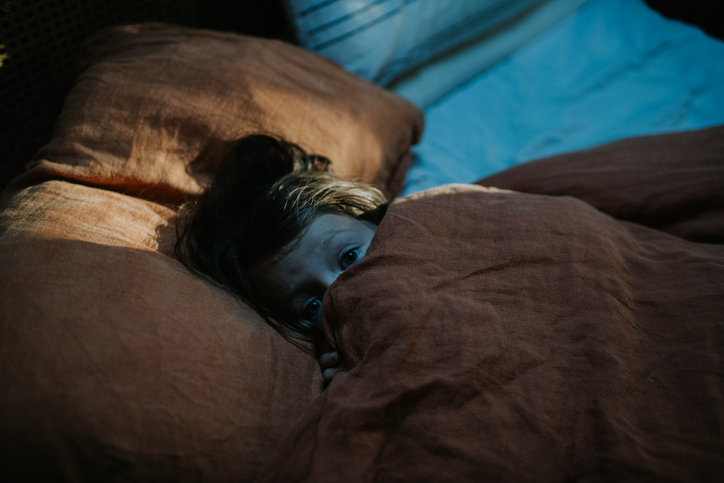How To Not Be Terrorized By Night Terrors

By Sydney Kronfle, pH Labs Researcher & Contributor
When I was a little girl, there was a significant period of time where I was a sleepwalker. My sleepwalking was so intense, that one night I sleepwalked from the third floor of my home all the way down to the basement and opened the door leading to the garage which triggered the alarm. I will never forget how shocked and scared I felt when I woke up standing in the basement with the blare of the alarm ringing in my ears.
Although that particular incident really scared my parents and older sister (they thought that someone had broken into our home!), my sleepwalking was pretty much just something everyone joked about. Apparently, one time I sleepwalked in a hotel room that I was sharing with my sister and made train sounds.
I eventually grew out of my sleepwalking and never thought much about it. I now have a two-year-old who let’s just say has made sleep very challenging for me since he was born. It’s expected that newborns will be up often during the night. Once my husband and I got through that difficult phase, overall our son sleeps fairly well through the night. However, sometimes he will wake up out of nowhere at 4am singing Old MacDonald Had a Farm or Row Row Row Your Boat. Although hilarious, it can be frustrating. Like so many new moms, I turned to Google. How can I get this child to sleep peacefully through the night? Through my research efforts, I got some perspective that my toddler’s nocturnal singing sessions are really not that bad when I started reading about how some children experience night terrors.
What are night terrors?We all know what a nightmare is and have probably experienced at least one in our lives. Night terrors are completely different and usually occur in children between the ages of three to seven.
“During a night terror, a child may scream, talk or cry but not really be awake,” said Dr. Vaishal Shah, a pediatric sleep disorders expert, who was referenced in this article by Cleveland Clinic.
“If the light is on, you can see they’re pale or sweaty. Their fight-or-flight response is fully activated.”
Fortunately, night terrors do not cause any harm and end in deep sleep, according to Stanford Medicine Children’s Health.
Nevertheless, I imagine this can be quite traumatizing to the parents seeing their child go through this. Stanford reports that an episode of a night terror can last up to 45 minutes! The child appears frightened but does not respond to attempts to wake him/her up, and comforting the child does not seem to help either. The good news is that the child will not have any recollection of having a night terror, and they usually grow out of them. Adults can experience night terrors, however, it is more common in children.
How can we be proactive?
If your child is experiencing night terrors, it is not your fault. Just talk to your pediatrician to come up with a comprehensive plan. I also highly recommend reading this information from John Hopkins Medicine.

As with all things health and wellness related, I do recommend looking at diet. If your child is consuming caffeine, it might not be a bad idea to eliminate this to see if that helps. There is also a major connection between overall nutrition and quality sleep.
“Growing evidence indicates that sufficient nutrient consumption is important for sleep. One large study found a lack of key nutrients, such as calcium, magnesium, and vitamins A, C, D, E, and K to be associated with sleep problems,” according to SleepFoundation.org (formally the National Sleep Foundation).
As a mother to a toddler who can be a picky eater, I know how hard it is to get a child to consistently eat a well-balanced, nutrient-rich diet. Check out these pH blogs on children and nutrition. If your child usually has a snack before bedtime, SleepFoundation.org has a list of natural foods and drinks that promote sleep and/or contain melatonin (which helps control your sleep and wake cycles).
It is also highly recommended to avoid or limit screen time before bed.
Enjoy your healthy life!
Disclaimer: This article is not intended to provide medical advice. Please consult with your doctor or another competent healthcare practitioner to get specific medical advice for your situation.
The pH professional health care team includes recognized experts from a variety of health care and related disciplines, including physicians, attorneys, nutritionists, nurses, and certified fitness instructors. This team also includes the members of the pH Medical Advisory Board, which constantly monitors all pH programs, products, and services. To learn more about the pH Medical Advisory Board, click here.







